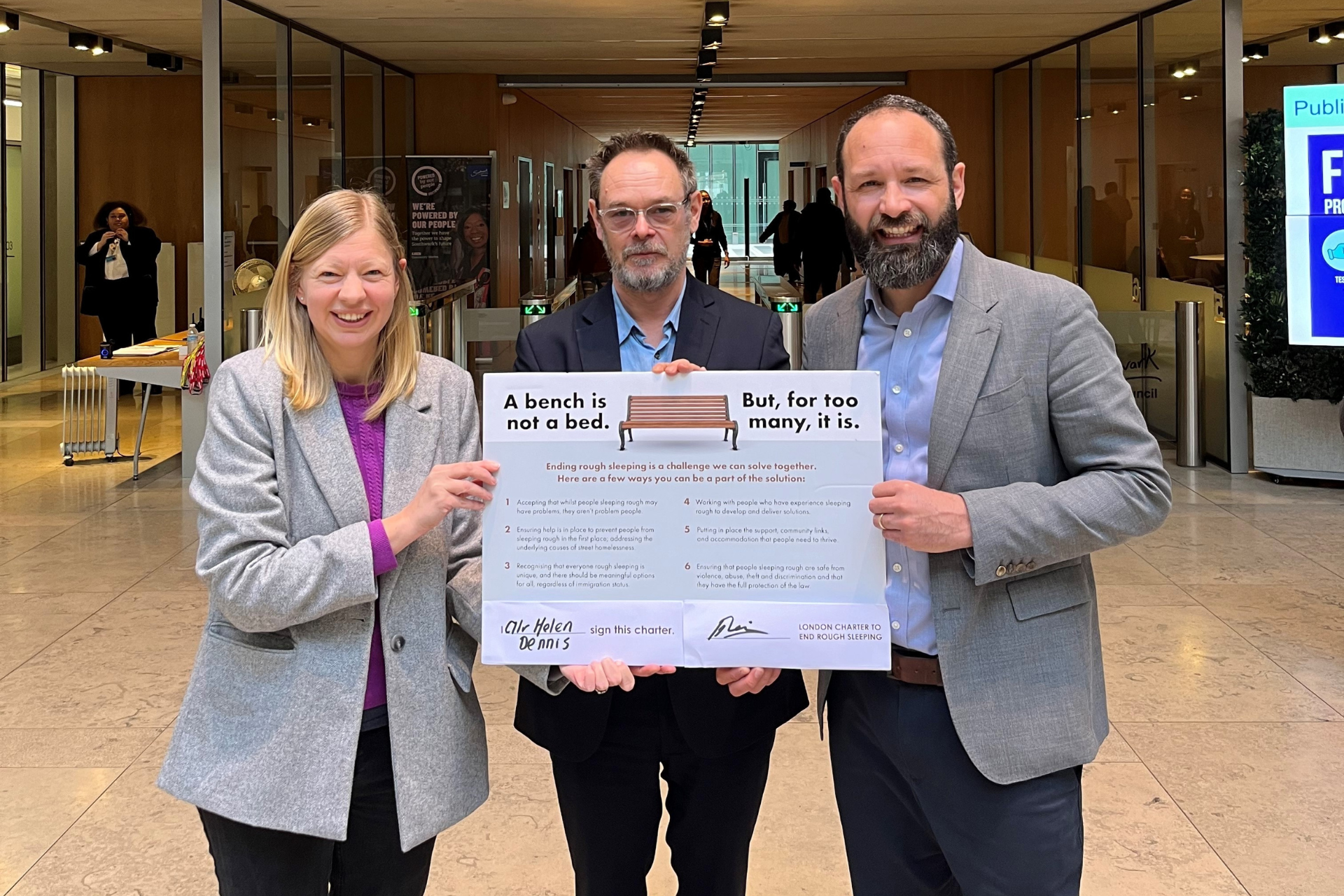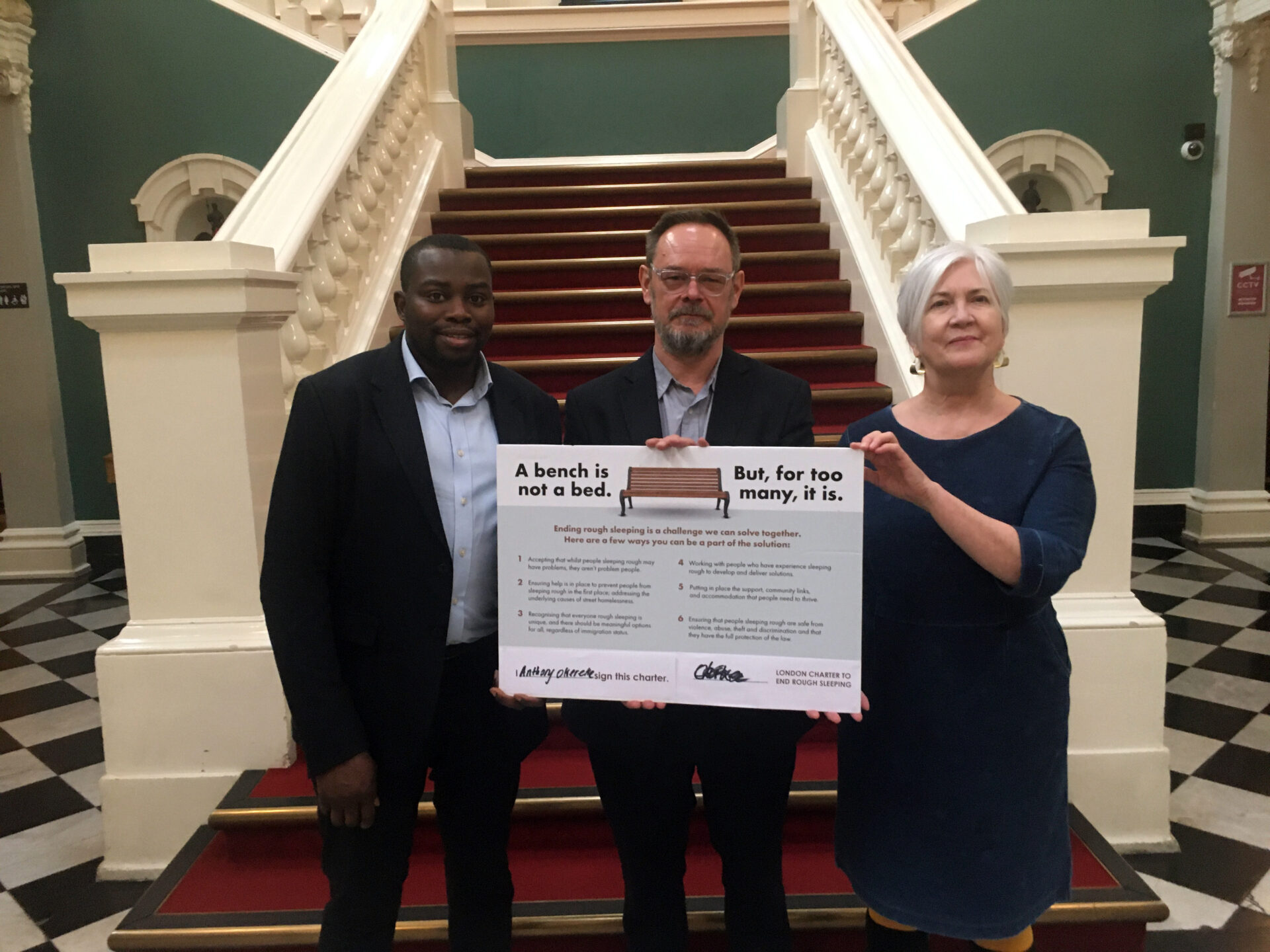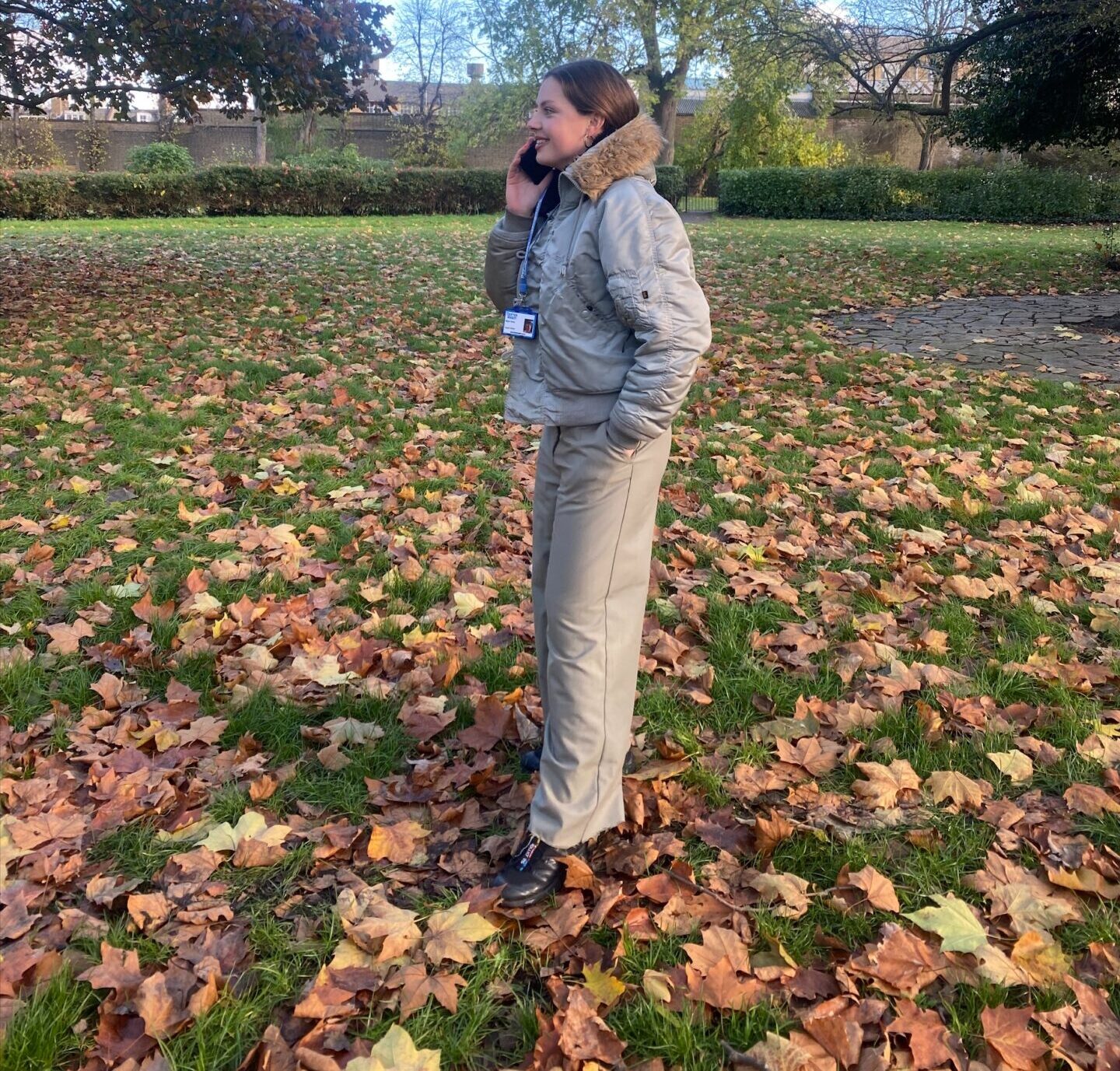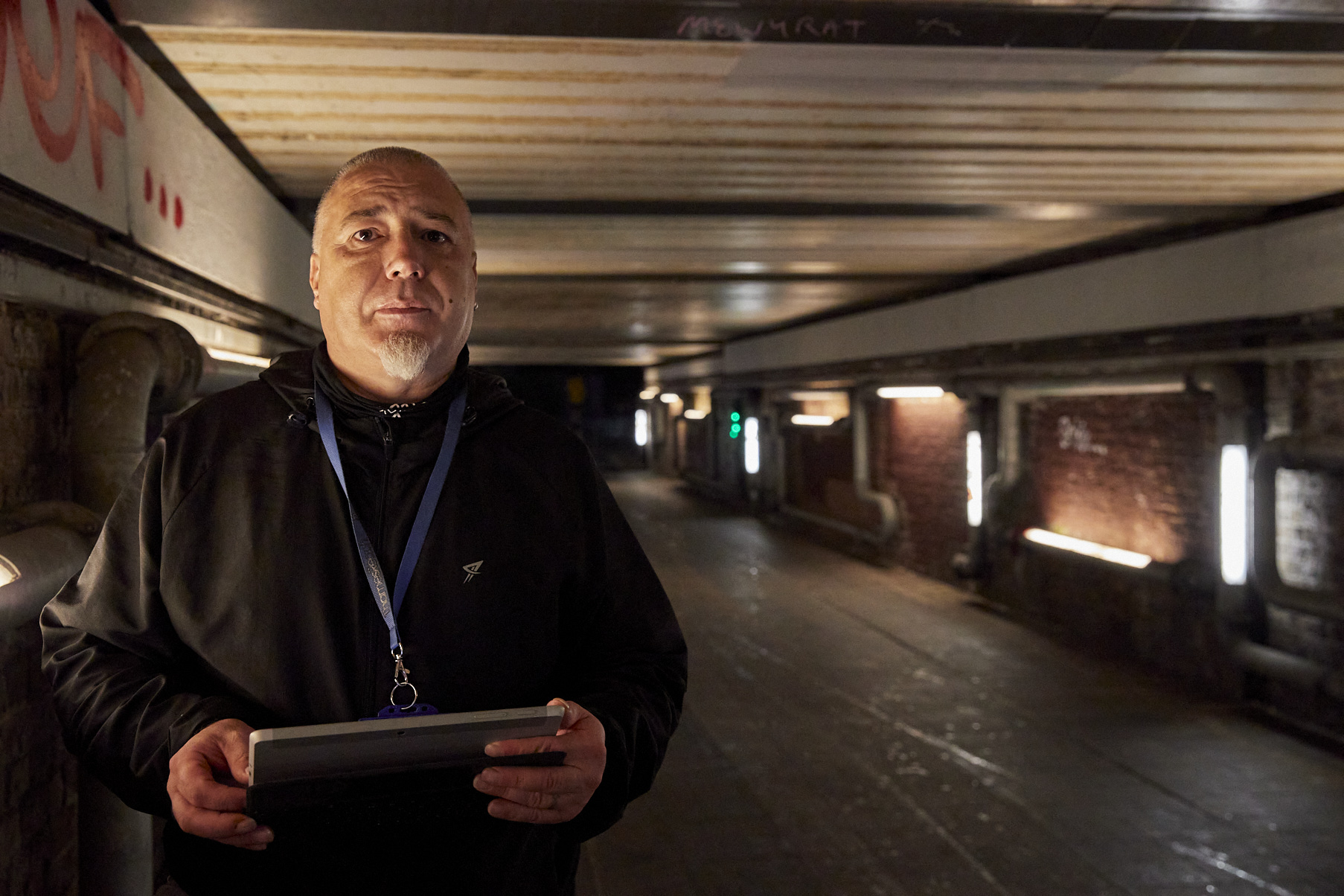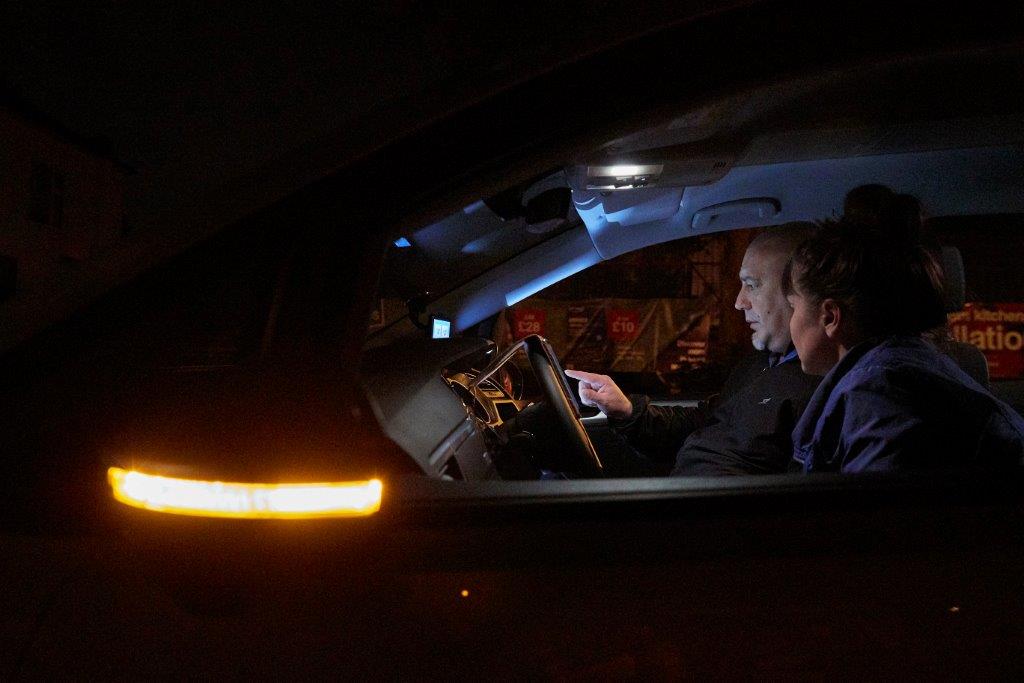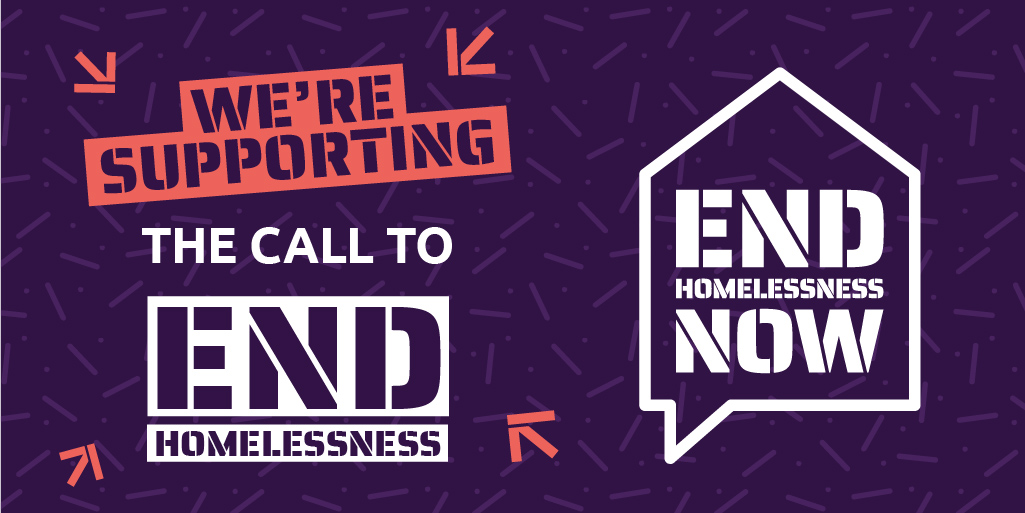The Royal Borough of Greenwich reaffirmed its commitment to ending rough sleeping this week, as senior council figures signed the London Charter to End Rough Sleeping.
Council Leader, Cllr Anthony Okereke, and Cllr Pat Slattery, Cabinet Member for Housing, Neighbourhoods and Homelessness, met with Thames Reach Chief Executive Bill Tidnam as they signed the London Charter to End Rough Sleeping on behalf of the Royal Borough of Greenwich at Woolwich Town Hall.
The Charter, which Thames Reach wholeheartedly supports, aims to unite individuals, businesses, faith groups, charities, and public bodies in the shared mission to eliminate rough sleeping in our city. It represents a public commitment, a pledge to strengthen partnerships, and an opportunity for diverse communities to actively contribute to a solution.
Quotes from those attending
Bill Tidnam, Thames Reach Chief Executive, said: “Rough sleeping is the most extreme manifestation of the housing crisis in London. The Royal Borough of Greenwich has a clear commitment to working to end rough sleeping in the borough, with a range of services aimed at prevention, intervention and recovery. It’s great to see real leadership on this issue from the Leader, Anthony Okereke, and Councillor Pat Slattery, as they join the Mayor in signing the London Charter to End Rough Sleeping.
Cllr Anthony Okereke, Leader of the Council, said: “I am incredibly proud to be able to sign the London Charter to End Rough Sleeping with our Cabinet Member for Housing, Neighbourhoods and Homelessness, on behalf of Royal Greenwich. It is vitally important that we come together with partners and as a community to develop and deliver solutions to end rough sleeping for good and ensure that everyone has a roof over their heads.”
Cllr Pat Slattery, Cabinet Member for Housing, Neighbourhoods and Homelessness, said: “Many people who sleep rough can face fear, loneliness and hunger and we are determined to do everything we can to end it here in Greenwich, which is why the Leader and I are delighted to have signed the London Charter to End Rough Sleeping.
“As a Council we are already at the forefront in London of providing emergency support to rough sleepers during severe cold weather spells and our Housing Inclusion Service works tirelessly to offer much-needed longer-term support – including permanent placements – to help many of them rebuild their lives and stay off the streets permanently”.
The charter
By signing the Charter, individuals, businesses, and organisations make a real impact. It keeps the issue in the spotlight, showing policymakers that many care about ending rough sleeping in London.
Whether you’ve been a committed advocate or are new to the cause, your support goes a long way. Visit the Charter website to sign up, make a pledge, donate, or volunteer. Every small action adds up to the collective effort to end rough sleeping in London.



